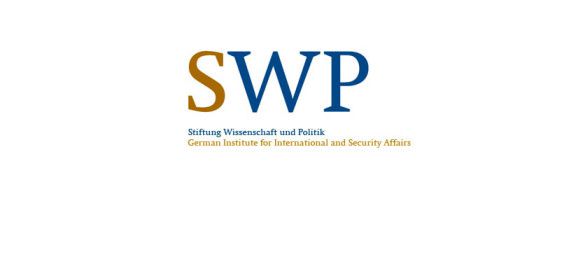Section: German Institute for International and Security Affairs (Germany)
Nord Stream 2: Ein Druckmittel gegen Russland?
Nach der Vergiftung des russischen Oppositionellen Alexei Nawalny mit einem chemischen Kampfstoff aus der Gruppe Nowitschok steht die Ostseepipeline Nord Stream 2 als mögliches Druckmittel gegen Russland im Fokus. Ein Baustopp, ein Moratorium oder die Blockade von Gaslieferungen durch die Röhren werden als Reaktion für den Fall diskutiert, dass...
Between Neighbours: How Does Russia View the Election Aftermath in Belarus?
In Moscow all eyes are on Belarus. Russia and Belarus are intimately connected, so political actors in Russia feel an immediate connection with developments there. In formal terms the two countries form a “union state” and an economic and defence community. Belarus is Moscow’s closest ally and a linchpin for Russian neighbourhood policy....
Unter Nachbarn: Der russische Blick auf die Nachwahlproteste in Belarus
In Moskau blickt man in diesen Tagen gebannt auf Belarus. Für alle Seiten stehen die Entwicklungen dort in unmittelbarem Zusammenhang mit der politischen Situation im eigenen Land. Denn die russische und die belarussische Politik sind aufs engste miteinander verquickt. Formal bilden die beiden Länder einen Unionsstaat sowie eine Wirtschafts- und...
Russia’s “Passportisation” of the Donbas
Russia has so far issued almost 200,000 Russian passports to Ukrainians from the “People’s Republics” of Donetsk and Luhansk. This undermines the Minsk peace process. The passportisation of the Donbas is part of a tried and tested set of foreign policy instruments. Russia is deliberately making it more difficult to resolve territorial...
Russlands »Passportisierung« des Donbas
Russland hat bisher knapp 200 000 russische Pässe an Ukrainerinnen und Ukrainer aus den »Volksrepubliken” Donezk und Luhansk vergeben. Damit untergräbt es den Minsker Friedensprozess. Die Passportisierung des Donbas ist Teil eines erprobten außenpolitischen Instrumentariums. Mit ihm erschwert Russland gezielt die Beilegung ungelöster...
Eurasiens Wirtschaft und Covid-19
Covid-19 hat die Staaten des postsowjetischen Raums in unterschiedlicher Weise getroffen, doch die Persistenz etablierter wirtschaftspolitischer Strukturen zeigt sich überall – auch dort, wo Reformen unternommen werden. Die russische Führung sieht sich durch die Krise in ihrem Kurs bestätigt und strebt keine strukturellen Reformen an. Usbekistan...
Annexations in the West Bank: Europeans need to punch their weight
In the coming weeks, crucial decisions on the Israeli-Palestinian conflict are likely to be made. After three rounds of elections and difficult tactical manoeuvres, a coalition government under Benjamin Netanyahu was sworn in last week. The coalition agreement between the main partners – Likud, and Blue and White – stipulates that, as of 1 July,...
Binnenvertreibung: Eine entwicklungspolitische Herausforderung
Deutsche und europäische Entscheidungsträger ringen seit Jahren um Kompromisse in der Flüchtlings- und Migrationspolitik. Dabei wird häufig vergessen, dass die meisten Menschen, die sich aufgrund gewaltsamer Konflikte, Naturkatastrophen oder großangelegter Infrastrukturprojekte gezwungen sehen, ihren Heimatort zu verlassen, keine internationale...
Foresight can help in preparing better for nasty surprises
The Corona pandemic underlines the continued importance of improving foresight capabilities. Over the past decade, we have been confronted with an abundance of unexpected situations: the global refugee and migration crisis, the annexation of Crimea by Russia, the election of Donald Trump, and Brexit – all of which caught states and societies off...
Auf dem Weg zu mehr Resilienz
Infolge des Konflikts zwischen Russland und der Ukraine seit 2014 wurde die Anfälligkeit der baltischen Staaten für Destabilisierung zu einem wichtigen Thema in den transatlantischen und europäischen Strukturen. Nicht nur das Problem der militärischen Verwundbarkeit ist in diesem Zusammenhang wesentlich. Zahlreiche weitere Themen gerieten ins...



